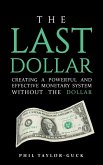The Psychology of Finance The Psychology of Finance: Unveiling the Mind Behind Financial Decisions Dr. Maxwell Shimba's "The Psychology of Finance" offers a comprehensive exploration of how human behavior influences financial decisions. This insightful book bridges the gap between psychology and finance, providing readers with a deep understanding of the cognitive and emotional factors that drive financial behavior. Dr. Shimba explains that financial decisions are not solely based on rational analysis but are significantly influenced by psychological biases, emotions, and social factors. By delving into these underlying influences, the book equips readers with the knowledge to make more informed and rational financial choices. One of the central themes of the book is the impact of cognitive biases on financial decision-making. Dr. Shimba identifies common biases such as overconfidence, anchoring, confirmation bias, and loss aversion, and explains how these biases can lead to suboptimal financial outcomes. Through real-world examples and practical strategies, the book teaches readers how to recognize and overcome these biases, thereby improving their financial judgment and decision-making processes. This section is particularly valuable for investors and financial professionals seeking to enhance their analytical skills. Emotions play a crucial role in financial decisions, and Dr. Shimba dedicates a significant portion of the book to exploring this connection. Emotions like fear, greed, joy, and stress can lead to irrational financial behavior, such as panic selling, impulsive buying, or holding onto losing investments. The book offers techniques to manage these emotional drivers, emphasizing the importance of emotional intelligence in achieving financial well-being. By understanding and regulating their emotions, readers can make more balanced and strategic financial decisions. Social influences, including social norms, peer pressure, and media, also affect financial behavior. Dr. Shimba examines how these external factors can shape our financial choices, often leading us to conform to group behaviors or react to market trends without critical analysis. The book provides strategies for mitigating these influences, encouraging readers to seek diverse perspectives, conduct independent research, and base their decisions on objective criteria. This approach helps readers navigate the complex social landscape of financial markets and make decisions that align with their long-term goals. The concepts of time discounting and the sunk cost fallacy are also addressed in the book. Time discounting refers to the tendency to prioritize immediate rewards over future benefits, while the sunk cost fallacy involves continuing an investment based on past costs rather than future prospects. Dr. Shimba highlights the importance of focusing on future potential rather than past investments or immediate gratification. He outlines practical steps to set clear financial goals, automate savings and investments, and conduct regular financial reviews to avoid these common pitfalls. In conclusion, "The Psychology of Finance" by Dr. Maxwell Shimba is an essential read for anyone looking to deepen their understanding of the psychological aspects of financial decision-making. The book combines theoretical insights with practical strategies, making it accessible and valuable for a wide audience, including investors, financial professionals, and individuals seeking to improve their personal finances. By exploring cognitive biases, emotional influences, social factors, and decision-making frameworks, Dr. Shimba provides a comprehensive guide to
Hinweis: Dieser Artikel kann nur an eine deutsche Lieferadresse ausgeliefert werden.
Hinweis: Dieser Artikel kann nur an eine deutsche Lieferadresse ausgeliefert werden.








